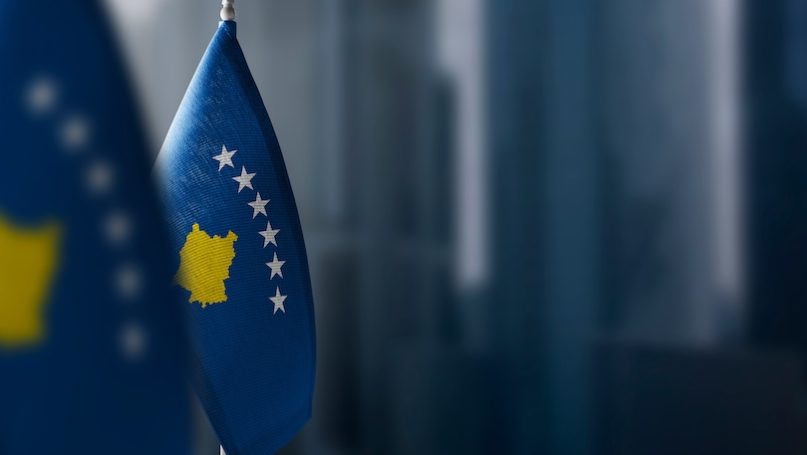
This case study is an excerpt from McGlinchey, Stephen. 2022. Foundations of International Relations (London: Bloomsbury).
The end of World War Two saw the establishment of the Federal People’s Republic of Yugoslavia, a communist state closely aligned to the Soviet Union. Yugoslavia was comprised of six republics – Bosnia and Herzegovina, Croatia, Macedonia, Montenegro, Serbia and Slovenia. In 1963, it changed its name to the Socialist Federal Republic of Yugoslavia. It was not long before Yugoslavia became unstable with demands for more autonomy from the central government in Belgrade. Most notable of these protests were in Croatia between 1970 and 1971, which eventually resulted in the Constitution of 1974 that reduced the power of the federal government in Belgrade and increased the autonomy of the two provinces in the republic of Serbia – Vojvodina and Kosovo. Things finally erupted in 1991, when Yugoslavia broke apart. The Republic of Serbia joined forces with Montenegro and became known as the ‘Federal Republic of Yugoslavia’. Almost a decade of civil war and instability ensued as the rival factions within the former state fought to establish their own claims on sovereignty.
Unrest in the autonomous province of Kosovo eventually manifested in the 1999 Kosovo War with the Federal Republic of Yugoslavia on one side, and the Kosovo Liberation Army on the other. At the height of the crisis, NATO intervened on humanitarian grounds, becoming a third party to the war. From the very beginning of the crisis, almost 200 humanitarian organisations were engaged on the ground, many of them under the coordination of the UN Refugee Agency (UNHCR) because of the number of people who had fled their homes due to the conlict. Mass killings, widespread rapes and pillaging were some of the allegations against the Yugoslav troops during the War investigated by the Kosovo Verification Mission of the Organisation for Security and Cooperation in Europe (OSCE), a regional intergovernmental organisation based in Finland. These crimes were tried by the International Criminal Tribunal for Yugoslavia (ICTY), a UN Tribunal established in 1993.
The Kosovo War finally ended when Slobodan Milosevic, President of the Federal Republic of Yugoslavia, accepted the terms of the international peace plan. On 10 June 1999, the United Nations Security Council adopted Resolution 1244 which established a peacekeeping force under the NATO umbrella, as well as the United Nations Interim Administration Mission in Kosovo (UNMIK). Despite the controversy surrounding the prior aerial bombardment by NATO, it was not until UNSC 1244 was adopted that states could accept a NATO-led peacekeeping force in Kosovo. The Kosovo Force (KFOR) was then established, comprising troops from both NATO member states and non-member states.
The establishment of UNMIK did not resolve the legal status of Kosovo, nor was it meant to. It was created to help the Security Council ensure the conditions for a peaceful and normal life for all inhabitants of Kosovo – which it did by beginning talks in February 2006 under the stewardship of UN Special Envoy and former Finnish President, Martti Ahtisaari. Negotiations stalled however, and on 17 February 2008 Kosovo self-declared its independence as a sovereign state. The Republic of Serbia (which since had broken off from the Federal Republic of Yugoslavia, leaving it and Montenegro as distinct sovereign states) argued that the declaration was illegal and not in accordance with UNSC Resolution 1244 or the UN Charter. States around the world were divided – some recognised Kosovo’s secession from Serbia, some did not. On 8 October 2008, pursuant to a request by Serbia, the UN General Assembly agreed to refer the matter of Kosovo’s independence to the International Court of Justice.
Negotiations in the General Assembly that resulted in the resolution to send the question to the International Court of Justice only asked the Court for an advisory opinion, not a ruling towards the issue at hand which was whether the unilateral declaration of independence by the Provisional Institutions of Self-Government of Kosovo was in accordance with international law. The opinion of the International Court of Justice was that the declaration of independence was not in violation of international law since international law has no prohibitions on declarations of independence. The Court understood that the question of the independence of a state (and therefore its sovereignty) is a question of political recognition – as detailed in chapter two.
Approximately half the world’s states now recognise Kosovo. Yet, despite this, Kosovo is still not a member state of the United Nations as agreement at the Security Council can not be reached, principally due to Russia’s veto. This issue underlines the nature of power politics, but also the pressures of normalising the idea of breakaway states forming. States such as Russia also have regions that seek independence (Chechnya for example) and as such Russia acts in its own self interest to mute such claims, rather than amplify them by agreeing to Kosovan independence. Russia is not alone in this stance, and other states who have secessionist claims within their borders, such as China (who also hold a Security Council veto) and India, take a similar stance on Kosovo. Therefore, international organisations such as the United Nations are only as strong as their member states allow it to be. For that reason, and by design, it cannot transgress the bounds of its mandate and recognise the sovereignty of Kosovo by itself.